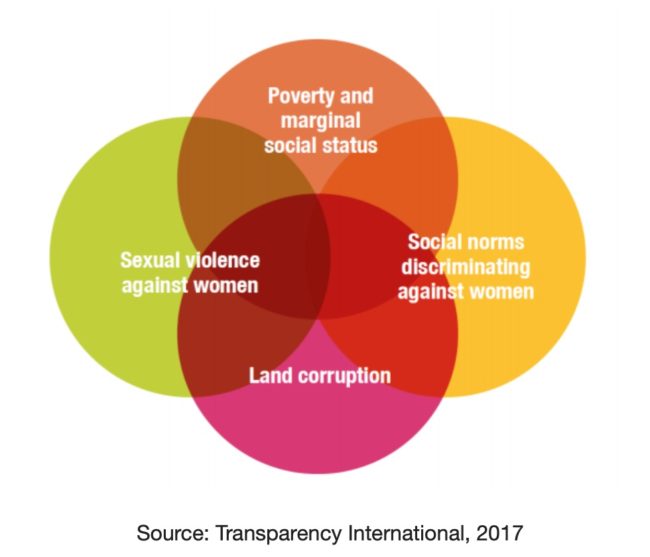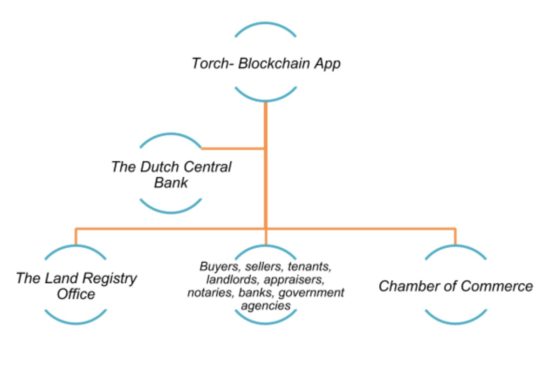Blockchain startups using ICO (Initial Coin Offering) as a method of fundraising have raised $6.3B in 2018, compared to $5.6B of startup funding ICOs obtained in 2017. This is an enormous amount, but most of these funds have gone to startups without real use cases that can benefit masses.
Here we take a look at three promising case studies in which startups and government agencies used the Blockchain to deliver real value to end users. This includes Bitland from Ghana, ABN AMRO from the Netherlands, and Sweden’s land registry system called Lantmäteriet.
Bitland Automates Land Registration in Ghana
The growth of underdeveloped countries is hampered by transparency issues in land ownership. “70% of the world’s population lacks access to land titling,” estimates the World Bank. Couple this with a recent study by the Transparency International (TI) indicating that land corruption is a serious threat to livelihoods in Africa, and it’s clear to see that the problem is serious. TI found that men and women face different consequences due to land corruption. For instance, women face sexual violence, discriminatory social norms, and poverty and marginal social status due to land corruption. Men, on the other hand, face poverty and marginal social status only.
Fig 1- Fig 1- Land related issues as experienced by women

Nowhere is this problem as pervasive as in Ghana, a country with a population of 29.5 millions (and a participant in TI’s research) which faces transparency issues in land registration. The lack of transparency and outright corruption results in courts being inundated with land dispute cases. A major cause of the problem is a centralized land register system operated under a government agency. As a result, people have to face incomplete security of land tenure, ownership disputes, and corruption by officials.
Bitland, a Blockchain-based company located in Kumasi, Ghana, aims to solve this issue by digitizing land titles. The NGO aims to help the Ghanaian government establish an efficient and fair land registration system by letting people enter land title records on its decentralized Blockchain-based platform. Researchers at the Massachusetts Institute of Technology (MIT) observed that :
[Bitland] “allows individuals and groups to survey land and record title deeds on the Bitland blockchain – providing a permanent and auditable record – as well as acting as a liaison with the government to help resolve disputes.”
Bitland uses both decentralized data storage and traditional server warehouses for back-ups. It uses MIT Graphene encryption for any data that is being transmitted across the network or stored. A key job for the Bitland system is to run regular integrity checks to ensure land titles are not registered to more than one owner. It prevents fraudulent activities if any person or official tries modifying it without taking direct responsibility. Any official working against the interest of the government or an individual is exposed through digital footprints.
ABN Amro Simplifies Commercial Real Estate Transactions
According to a report by IBIS World, the US Commercial Real Estate (CRE) industry, consisting of retail malls, hotels, restaurants and casinos, earned annual revenues of $4tr in 2017, provides direct and indirect employment to 16.2 million people, and the survival of 3.7 million businesses is dependent on it. There is much that needs to change in the industry, especially the way CRE transactions take place.
For instance, each CRE transaction involves numerous parties. This includes buyers, sellers, tenants, landlords, banks, notaries, appraisers, the Chamber of Commerce the Land Registry Office, and regulators. The presence of numerous parties, each with a different motivation, creates a complex web of inefficiency. To help simplify CRE transactions, ABN AMRO, the Netherlands’ third largest bank, launched a Blockchain application named Torch. The aim is to help these numerous parties involved in real estate transactions record and exchange information.
ABN AMRO’s commercial real estate clients whose properties are financed by ABN AMRO enter their lease contract in the Torch app, which is then validated by client’s relationship manager at the bank. The bank then uses the same Torch app to share property documents with a designated appraiser, who then conducts property valuation. Information from the Land Registry Office and the Dutch Chamber of Commerce is also available within the same app. The Dutch Central Bank also has also access to the same information, as do other parties in the transaction. ABN AMRO estimates the application makes a typical CRE transaction much faster and more transparent than compared to the traditional methods of information sharing.
Fig 2- ABN AMRO’s Blockchain implementation in CRE transactions

The bank did not reveal the impact Torch app had on the transactions’ efficiency, nor did it share results of its pilot program. However, we see other companies and municipalities on the other side of the globe experimenting with the same technology.
“Property startup Propy partnered with the South Burlington City Clerk’s office to move real estate conveyance documents onto a blockchain,” reported Inman.
Propy estimated that the time it took to transfer real estate title, as compared to the traditional paper-based method, was reduced by half.
It shows that Blockchain technology has some real applications in the legacy industries like real estate.
Sweden’s Blockchain-Powered Land Registry.
In January 2017, a British urban magazine ran a story titled “Nobody knows who owns 17 per cent of England and Wales: Why we need land market transparency.”
The author argues that, to determine land ownership for as much as 17% of England and Wales, one still need tons of envelopes and mountains of hand-signed documents and couriers. It shows that lack of transparency in land ownership and inefficiency in land titling is not a third-world problem only.
Same was the problem faced by the Swedish government. Estimates suggest that a real estate deal in Sweden takes months to complete and costs the taxpayers millions of Euros. A complex clearing and settlement system also stifles the industry growth.
In June 2016, the Swedish government, in partnership with consulting firm Kairos Future, blockchain company ChromaWay, and telecommunications provider Telia, launched a pilot project. The project aimed to shift Sweden’s land registry system called Lantmäteriet to blockchain.
“The Swedish government estimates to save taxpayers over €100 million ($106 million) a year by moving the land records to the Blockchain,” reported Quartz.
The savings will come from reduced paperwork, speedy transactions, and elimination of fraud in the real estate titling market.
Fig 3- Impact of implementing Blockchain in real estate titling

Legacy industries like title insurance, commercial real estate, and financial services are the ones where serious use cases have started to appear.
Beyond the hype surrounding Blockchain and ICOs (digital token-based startups), there are real-world applications of Blockchain. The only thing mainstream media needs is the ability to sift signal from noise to reach the right startups innovatively using the Blockchain technology.





